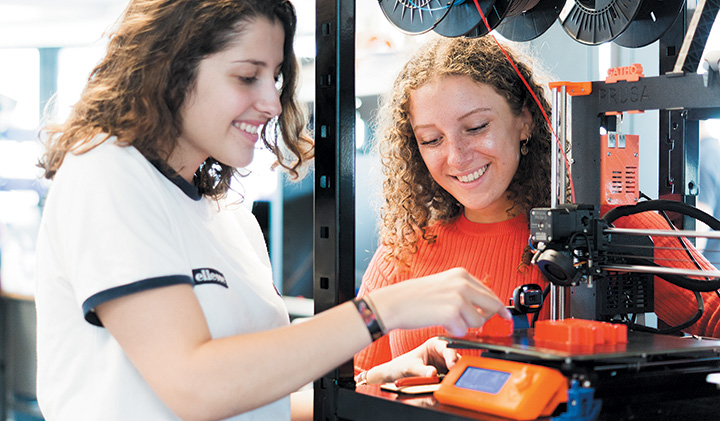Some people refer to it as the Fourth Industrial Revolution, others as digital transformation, and the vast majority as Industry 4.0. Regardless of its connotation, it’s obviously transforming production lines, supply chains, team divisions and tasks, and altering the manufacturing workplace of tomorrow.
Industry 4.0 will soon have an impact on the workplace if it hasn’t done so already. With machine learning capabilities and connected equipment enabling businesses to automate the production line, the human workforce can take on new duties and focus less on repetitive tasks. Where can this impact be spotted?
Personalized Manufacturing
Industry 4.0 is dawning a new age of combining customized production with the speed and on-time delivery expectations of today’s consumers. This is the age of the customer, and customers demand bespoke products and services very quickly.
Intelligent and integrated systems are playing an important role in student projects and translate in the future for manufacturers that want to put their customers first, delivering instructions to machines about specific customer orders as they progress along the production line.
New Methods of Work
The fourth industrial revolution is raising new manners to conduct work. In this new industrial landscape where skills and knowledge demand are getting diverse and different from before, workers are expected to engage in higher-order cognitive and affective inputs such as creativity, lifelong learning, citizenship performance, environmental concerns, and many more (Deloitte Insight, 2018).
Improvement in Workplace Safety
Safety takes many forms and requires the attention of everyone involved in the process.
A perfect implementation of this idea would be the effective safety procedures that take place in the food and beverage industry. In this context, workplace safety means being stringent when it comes to food quality guidelines.
It’s no longer enough just to have policies and procedures, it’s more about having the information readily accessible to employees. All information should be available in real-time with simple digital work instructions. The workforce in the food and beverage industry can be especially dynamic.
Industry 4.0 Major at ESiLV Graduate School of Engineering
This Major trains future engineers to implement modern industrial systems that fully integrate the tools and technologies of the digital revolution.
Students will be able to work on production or service sites of industrial companies in all sectors in France and abroad.
In addition, students will gain the below competencies:
- Implement and manage modern industrial systems
- Master the chain and production methods
- Design and size the overall organization of an industrial system: know how to model, design automated and robotic industrial production systems
- Master digital technologies (use of the digital model, virtualization, augmented reality, internet of things, AI, 3D printing)
More Details about the Industry 4.0 Major at ESiLV.
This post was last modified on 16 January 2020 12:07 pm







